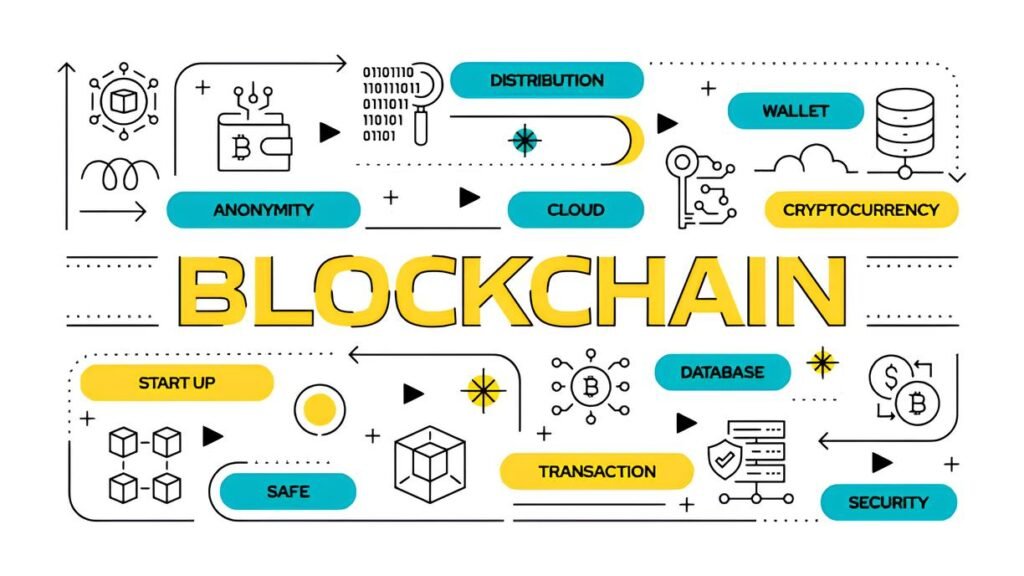Why Most Darknet Market Reviews Are Fake or Manipulated
Imagine scrolling through a marketplace where every vendor sports a perfect 5-star rating and glowing reviews flood their pages. At first glance, it seems like a dream setup—reliable sellers, smooth transactions, and zero risk. But beneath that polished surface lies a murky world of deception and manipulation that’s much more common than you think. What if most of these reviews aren’t genuine but rather carefully crafted illusions designed to lure buyers into a false sense of security?
Darknet markets, already notorious for their secretive and high-risk nature, present unique challenges around reputation and trust. Unlike conventional platforms where users have legal recourse or identity verification, the darknet thrives on anonymity, making it a playground for fake reviews and manipulative tactics.
In This Article
The Challenge of Building Trust on the Darknet
Trust is the currency of any marketplace. But on the darknet—where anonymity is prized and legal protections scarce—building trust is complicated. Vendors and buyers alike operate under pseudonyms, and the usual methods of vetting, such as identity verification or customer service guarantees, don’t exist. This lack of institutional oversight creates a vacuum where deception can flourish.
Reviews are the backbone of darknet reputations, but in such an opaque environment, it’s incredibly difficult to determine what’s authentic. Scams are rampant, and many vendors invest heavily in manipulating feedback to appear credible. This widespread incentive to deceive distorts the entire ecosystem, making it hard for even seasoned buyers to know who’s trustworthy.
Why Reputation Systems Are Vulnerable
At first glance, rating systems seem like a democratic way to build confidence. But on darknet markets, these systems have critical weaknesses:
- Unregulated content: Anyone can leave reviews without verification.
- Fake accounts and sock puppets: Vendors can create multiple accounts to boost their ratings.
- Market manipulation: Competitors may also post negative reviews unfairly.
- Disappearance of markets: Sudden shutdowns or exit scams leave many reviews unverifiable.
Even the customer feedback you trust may be part of carefully orchestrated efforts to lure in unsuspecting buyers.
How Fake Reviews Are Created and Spread
Fake reviews on darknet markets are not just about sprinkling a few positive comments. They often involve sophisticated operations designed to build credibility over time, including fake purchase histories, staged disputes, and manipulated refund records.
Some of the key methods include:
- Automated bots and scripts: These generate thousands of fabricated reviews to inflate vendor scores rapidly.
- Third-party review farms: Some darknet vendors outsource reviews to freelancers who write glowing testimonials.
- “Brushing” tactics: Vendors send small free or low-cost orders to accomplices who then post positive feedback.
- Multi-account rings: One person manages several accounts to exchange convincing buyer-seller interactions.
Not all reviews reflect real transactions. Some entries are planted or exaggerated with the intent to build a facade of legitimacy—and buyers trusting these can become victims of scams or flawed products.
These methods are even more effective when combined with encrypted messaging and escrow services, which give the illusion of security despite hidden risks.
Common Tactics Used to Manipulate Market Perceptions
Darknet vendors employ a variety of tactics to manufacture convincing reputations. Here are a few of the most widespread:
- Selective censorship: Removing or burying negative reviews so only positive feedback is visible.
- Timing tricks: Posting a flurry of positive reviews in a short period to mask earlier complaints or inactivity.
- “Review bombing” competitors: Organizing attacks that leave unfair negative feedback on rival vendors.
- Imitated feedback: Copying reviews from other legitimate vendors and reposting them to fake authenticity.
- False escrow disputes: Vendors stage disputes and then “win” with friendly moderators to seem trustworthy.
All these tactics manipulate buyer psychology—relying on the natural tendency to trust majority opinions and social proof.
Why This Matters: The Psychology Behind Trust
Even savvy darknet users fall prey to these manipulations because of cognitive biases that are amplified in anonymous settings. The pressure to quickly judge and act in a high-risk environment makes people latch onto seemingly reliable feedback, especially when visibility and verification options are limited.
When a vendor boasts hundreds of positive reviews, it’s tempting to believe them—even if those reviews are faint echoes in a vacuum of actual transactions.
Case Studies: The Cost of Relying on False Reviews
Case studies of infamous darknet market takedowns and exit scams reveal an unsettling pattern. Markets like Silk Road, AlphaBay, and Empire Market were all home to vendors with seemingly stellar reputations—until the platforms suddenly disappeared, taking buyer funds and revealing fake reviews as an underlying vulnerability.
In several instances, vendors leveraged fake positive ratings to:
- Attract large volumes of buyers quickly
- Create a smokescreen during scam operations
- Evade scrutiny by blending into a facade of trustworthy sellers
One notorious example involved a vendor who consistently ranked top in product categories but was later exposed as running a bait-and-switch scam, sending subpar products—or nothing at all—after payment. The flood of positive reviews had built a false moat around their notoriety.
Law enforcement investigations have also demonstrated that market manipulations often extend beyond reviews, with fake feedback tied to coordinated phishing schemes and even undercover operations posing as vendors or buyers. This complex web underscores why reliance on reviews without caution is dangerously naive.
How to Navigate Reviews and Protect Yourself
Despite the challenges, there are ways to use reviews wisely and protect yourself from common pitfalls.
- Cross-reference information: No review should stand alone. Check forums, independent darknet community sites, and vendor PGP keys. For a comprehensive beginner resource, consider How to Stay Anonymous on the Darknet in 2025: A Beginner’s Guide.
- Look for detailed, consistent feedback: Genuine reviews often include order details, delivery times, and product quality specifics rather than vague praise.
- Be wary of too-perfect ratings: Vendors with unnaturally high scores and generic reviews often indicate manipulation.
- Monitor vendor age and activity: Longstanding sellers with a history of trade and dispute resolutions are usually more trustworthy.
- Use escrow services cautiously: Even these are vulnerable; always understand the dispute process thoroughly.
Seek advice from reputable darknet forums and communities where users share unfiltered vendor experiences—remembering that no online reputation is infallible.
In addition, deepening your operational security habits by learning security checklists for new darknet users can further mitigate risks.
Thinking Beyond Reviews: The Bigger Picture
Reviews on darknet markets are tempting shortcuts to judgment, but often they’re a façade crafted by unknown players with unknown motivations. Blind trust in them can lead to financial loss, exposure to scams, or worse.
The darknet’s lack of regulation, combined with high anonymity, creates the perfect environment for review manipulation. Savvy users recognize that no single source of information is sufficient, and due diligence must combine vigilant skepticism with community feedback, technical precautions, and a solid understanding of privacy tools.
Ultimately, surviving the darknet marketplace is less about trusting glowing reviews and more about mastering patterns of critical observation, timing, and secure behavior.
For those serious about navigating this complex terrain safely, resources like monitoring darknet reputation without linking accounts can offer strategies on balancing curiosity with caution.



